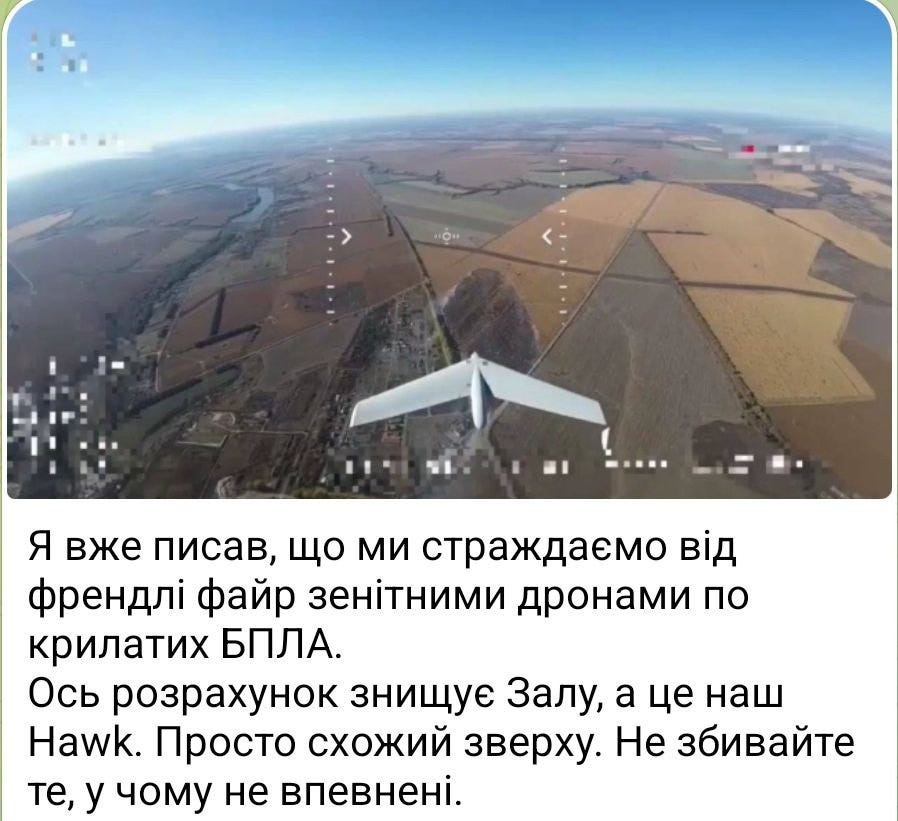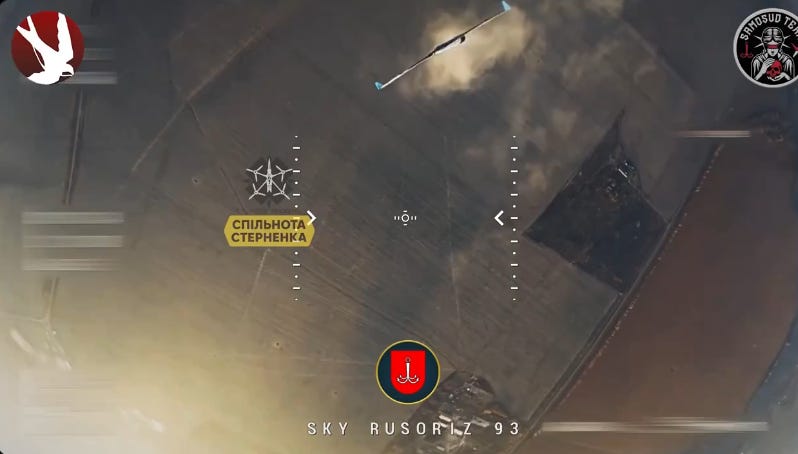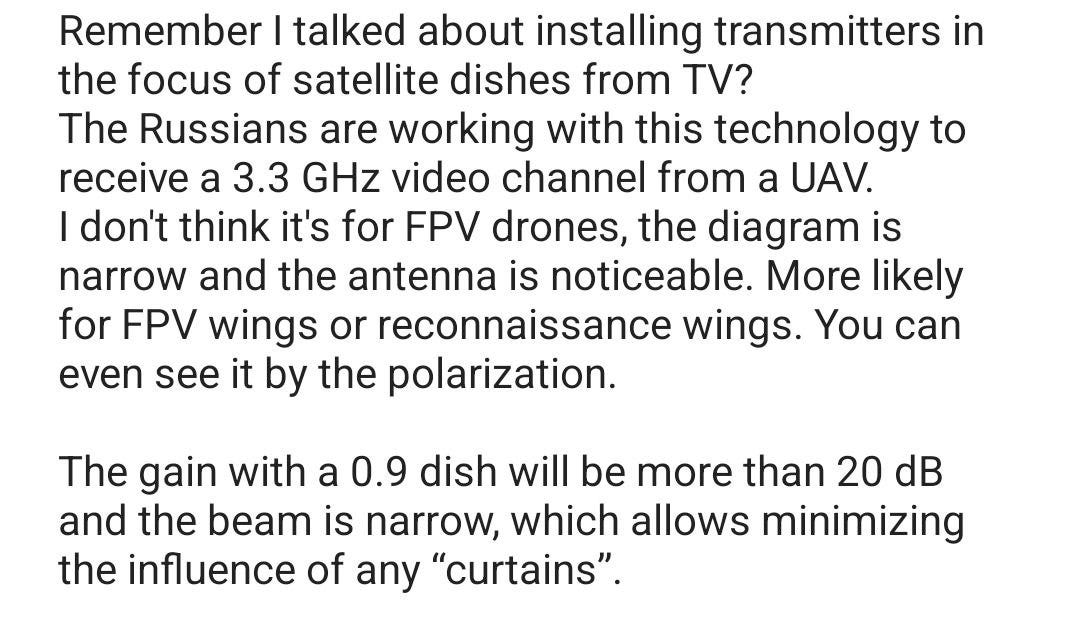The Weekly Telegram: AI Cameras, Shahed At Sea & Wifi Bridges
Some interesting theories and facts were harvested from Ukrainian Telegram this week.
In an earlier weekly Telegram, it was observed that often, modifications are made in the field as needed. This helps to ensure that equipment can stay ahead of changes in frequencies, EW countermeasures and other steps that are taken in an attempt to maintain control over the radio spectrum. This week, we saw some more developments in the battle between recon drones and interceptors, further developments in frequency agility and discussions around the issue of friendly fire.
AI-Powered Drone Survivability.
Our first clip is pretty interesting, as it shows further evolutions in the battle to keep Recon drones safe in the skies. The post shows a video clip that purports to be a battle between a recon drone and an FPV interceptor. While this is no abnormal situation over the front line, the one thing that is interesting is the usage of an AI module paired with a rear-facing camera to assist with defence.
This one would also be posted to X, disclosing similar information.
When spotting an interceptor in the frame, the drone takes immediate evasive actions, making life far harder for the intercepting team. This is no minor course adjustment either, in the video the drone could be seen making rapid turning descents in an attempt to evade the FPV unit.
The Shahed (Шахед) At Sea
This post focused on the Lancet and Hall drones launched by vessels in the Black Sea. Interestingly enough, the Shahed also gets a mention as rumours of it being launched in a maritime environment are now present.
While this is interesting, it is unverified at this point and shouldn’t be assumed to be factual until we receive information from corroborating sources. Still, if true, it’s an interesting development that may prove to be more relevant as Russian-built examples continue to come online in greater numbers.
The Shahed has played a key role in the ongoing bombardment of Ukrainian cities and it is now being produced in Russia after being licensed by Iran. Do any readers have information to corroborate the at-sea usage?
Friendly Fire
Historically a problem in most wars, the issue of blue-on-blue or friendly fire continues to be an issue across the front line. Primarily targeting winged UAVs as opposed to FPV or Consumer drones, this post references some of the similarities between systems and focuses on the fact that these can be a problem to deal with at altitude.
Camera technology has improved dramatically over the past few years, however, it’s fair to assume that this issue will continue to pose a problem while humans remain in the loop.
While commercial aircraft are able to use ADS-B technology to reliably ensure reporting of location and identification, on the front lines where the spectrum is heavily monitored, this simply isn’t possible. The development of technology to deal with this issue will be an interesting one to watch.
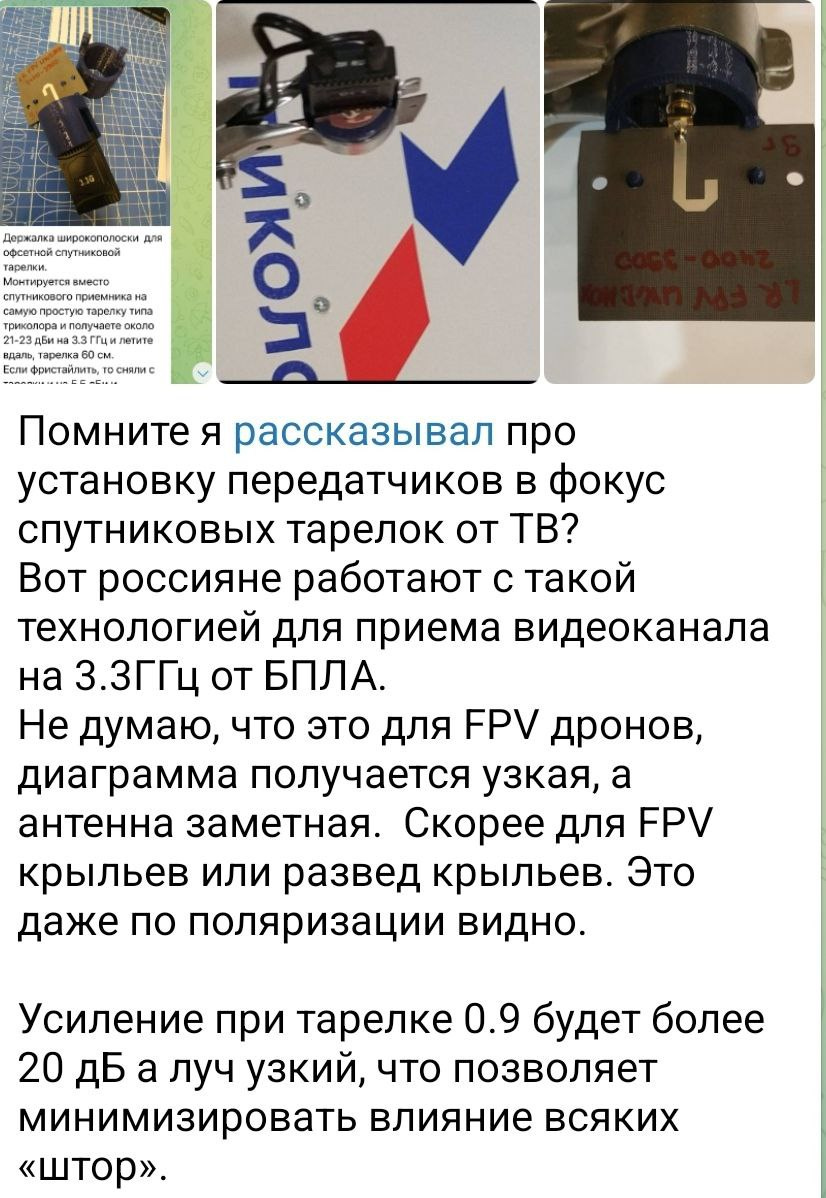
Frequency Developments
In previous posts, there have been plenty of posts that focus on the ability of FPV drone systems to be “frequency agile”. Doing this helps to provide early defences to EW and jamming tactics. Typically, this has focused on what frequencies are able to be used in the field.
However, in this post, we see that antenna design is also an ongoing consideration. While directional antennas will provide a significantly better range, there are also some EW considerations around this as well. Typically, directional antennas will have far smaller “sidelobes” making their transmissions more difficult to detect. It’s not the only factor that should be considered but it’s useful nevertheless.
Designs such as these appear to be making it to the front lines, primarily in flying wing-based recon designs. This system would be ideal for a high-speed video downlink setup.
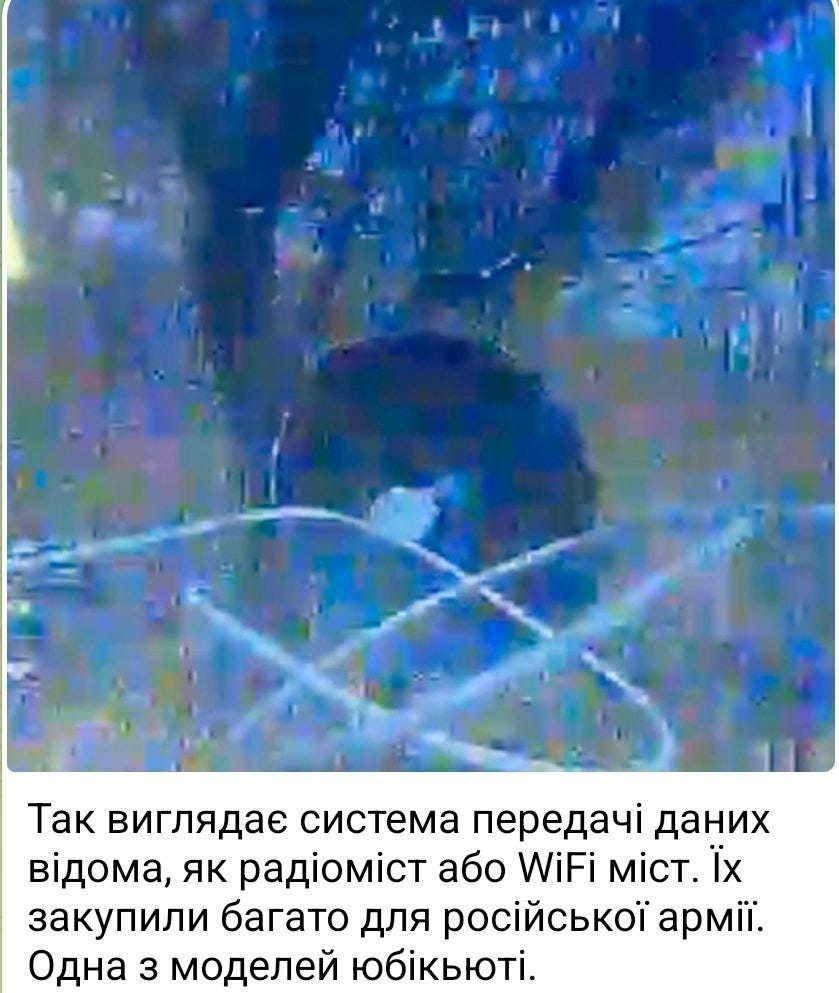
Wi-Fi Bridges
The presence of Starlink systems on the Russian side of the frontline has been reported for some time now. However, this post also reports that Ubiquity links are also now seen in use.
While the post doesn’t validate a location or use case for such a system, it does acknowledge the acquisition of large numbers of these units for the Russian military.
The image isn’t of great quality, so an unrelated image is included in case you haven’t seen such a system before.
It’s worth mentioning that Ubiquity is an American-based and owned company that is presumably unable to sell directly to Russia due to the existence of sanctions. The issue of sanction evasion is an interesting topic in its own right and this issue will be explored more in future articles.
Have you got an interesting tip? Seen an intriguing Social Media post that you think needs some extra attention? Tips for new stories that focus on current events and issues are always welcomed.
So, if you find something that you think is worth a story, send an email or find us on Twitter / X to send the info.
If you’d like to review the source channel on Telegram for today’s material, you can do so by visiting this link.
If you’d like to support Ukrainian independence, visit the official United24 website
Medium has recently made some algorithm changes to improve the discoverability of articles like this one. These changes are designed to ensure that high-quality content reaches a wider audience, and your engagement plays a crucial role in making that happen.
If you found this article insightful, informative, or entertaining, we kindly encourage you to show your support. Clapping for this article not only lets the author know that their work is appreciated but also helps boost its visibility to others who might benefit from it.
🌟 Enjoyed this article? Join the community! 🌟
📢 Join our OSINT Telegram channel for exclusive updates or
📢 Follow our crypto Telegram for the latest giveaways
🐦 Follow us on Twitter and
🟦 We’re now on Bluesky!
🔗 Articles we think you’ll like:
What The Tech?! Rocket Engines
OSINT Investigators Guide to Self Care & Resilience
✉️ Want more content like this? Sign up for email updates







